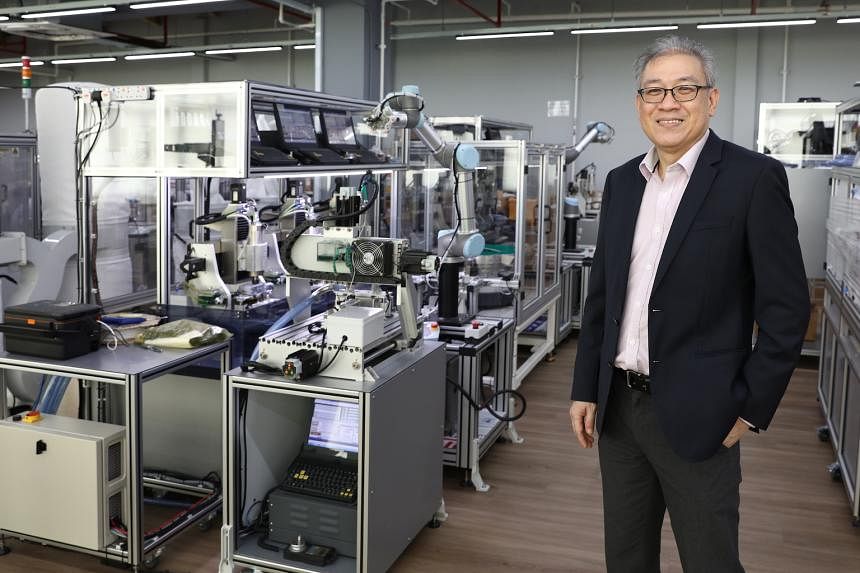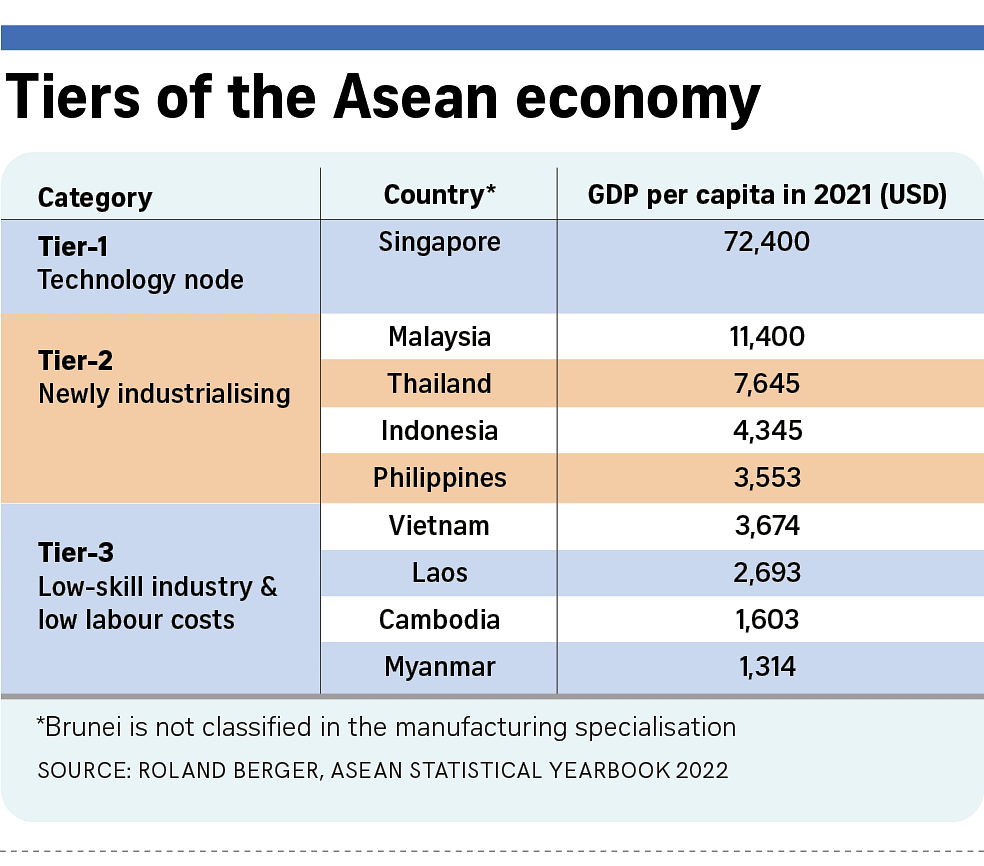Manufacturer with global imprint ready to reap dividends from opportunities in global manufacturing shift to the region

Mr Khoo Boo Hor, 58, runs a local company with a global footprint that stands ready for adversity, is swift to seize opportunities, and eager to partner.
As chief executive officer of private firm Sunningdale Tech, he helms a manufacturing company, born in 2005 through the merger of local precision plastics engineering companies Tech Group Asia and Sunningdale Precision Industries.
It has seen tremendous growth. In 2022, it generated $738 million in revenue – an 84 per cent increase from its first year of operations.
Ready for adversity, quick to shift
When Singapore was in the throes of the Covid-19 pandemic in 2020, Sunningdale – which produces components for multinationals in the automotive, consumer and healthcare sectors – converted part of its operations to making masks, antigen rapid test kits, and even TraceTogether tokens.
Like most companies, it grappled with pandemic disruptions. But, says Mr Khoo, “to be resilient in a dynamic environment, you need to diversify, and be flexible to meet needs”.
Within three months, its manufacturing facility in Joo Koon became one of the first to produce face masks locally, with a production capacity of over four million masks monthly, primarily for Singapore.
He adds that it is critical to “be prepared, so you can react when you are forced into a situation”, sharing how the company has started investing aggressively in growing its medical technology segment.
“We identified (the medtech segment) as a key growth driver. It initially made up about 10 per cent of our business in 2018. We have more than doubled it now, and are on track to increase this to a third in the next few years.”
Swift to seize opportunities
Sunningdale currently operates in over 18 locations in Asia, Europe and North America with a workforce of over 8,000 employees. Of this, about 1,000 are in Singapore, which is the company’s global base for innovation, research and development.
The company’s global footprint, says Mr Khoo, is its greatest advantage. “It’s not just about being very strong in one location, but being able to better support the needs of our global customers.”
This, he adds, has positioned the company to take on its next challenge: A shift in global manufacturing supply chains from China to other Asian countries, accelerated by recent events such as the US-China trade war, the Covid-19 pandemic and rising labour costs in China.
Between 2015 and 2021, the share of global foreign direct investment flow into Asean almost doubled, from 6 to 11 per cent, notes an August report by German management consulting firm Roland Berger.
Also, while US imports from Asean countries remained low overall, Cambodia and Vietnam saw a 231 per cent and 165 per cent increase in US imports in 2022 compared with 2018. The report suggests that this is “an early indication of shifting supply chains”.

Enter Sunningdale, whose established presence in the region enables it to support customers who have chosen to expand their manufacturing footprint in South-east Asia.
“We are seeing a trend towards nearshoring and other strategies to diversify their production,” says Mr Khoo, who has an engineering background. “They want to build more resilient supply chains, and we can support this.”
Nearshoring refers to businesses moving production and sourcing activities closer to end markets. Some advantages include reduced shipping and delivery costs, and increased operational flexibility and efficiency.
Mr Khoo notes that the company has been receiving “a rising number of queries from customers looking to set up base in the region”, which he anticipates will translate into new business in the near future.
Sunningdale has also invested heavily in digitalising its supply chain to better serve its customers.
“You have to be able to make quick and smart decisions, and you need a system that allows you to do that,” explains Mr Khoo. “If not, it is going to be very difficult to grow the business.”
Eager to partner
To grow and diversify its supply chains, it has tapped UOB’s financial supply chain management capabilities through its digital platform, UOB Infinity. The platform automates and streamlines financing between Sunningdale and its suppliers.
“This enables online tracking of Sunningdale’s payments and transactions, thus improving transparency and productivity, which is key for Sunningdale,” says Ms Ng Poh Yee, head of Trade and Financial Supply Chain Management Sales, UOB.
She adds that the platform gives stakeholders access to financing and fund-crediting through a single platform, “saving time and redirecting focus towards business management”.
Mr Khoo says that this has been crucial in managing the company’s liquidity needs and facilitating cross-border payments, enhancing operational efficiency and control over financial transactions as its business grows.
Looking ahead, Sunningdale Tech anticipates the company’s growth to accelerate as multinationals continue to prioritise resilience in their supply chains by diversifying into South-east Asia.
“With UOB Infinity, Sunningdale and the bank can seamlessly extend similar supplier financing for both cross border and domestic programmes to new suppliers,” says Ms Ng.
“This enhances Sunningdale’s working capital management and strengthens the relationship with their suppliers.”
This is the eighth of a 12-part series in partnership with

Bagikan Berita Ini














0 Response to "How local firm's nimble approach to supply chain issues promises big returns - The Straits Times"
Post a Comment